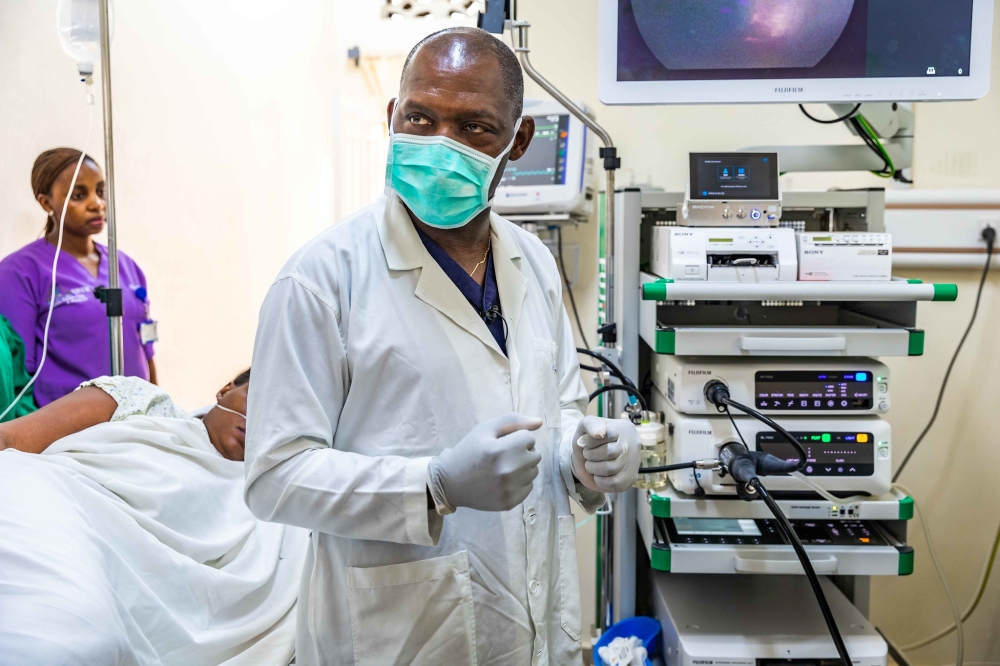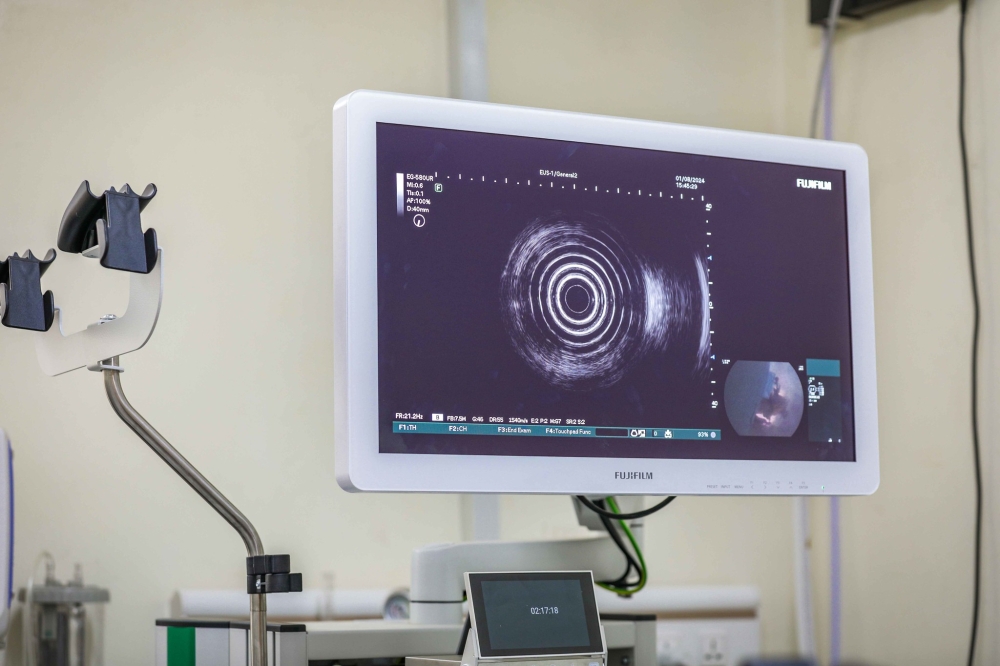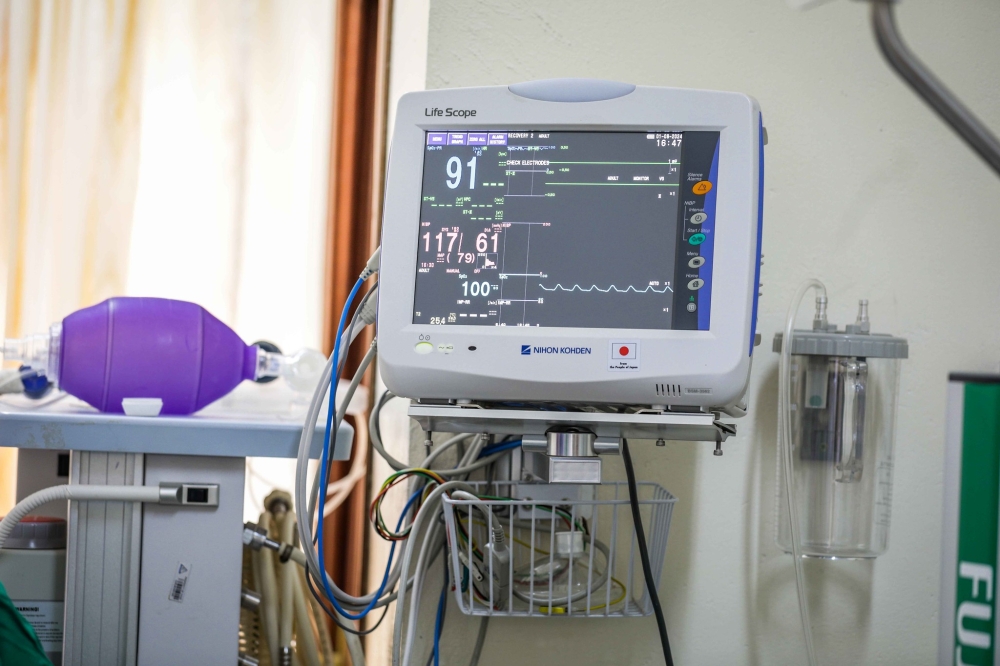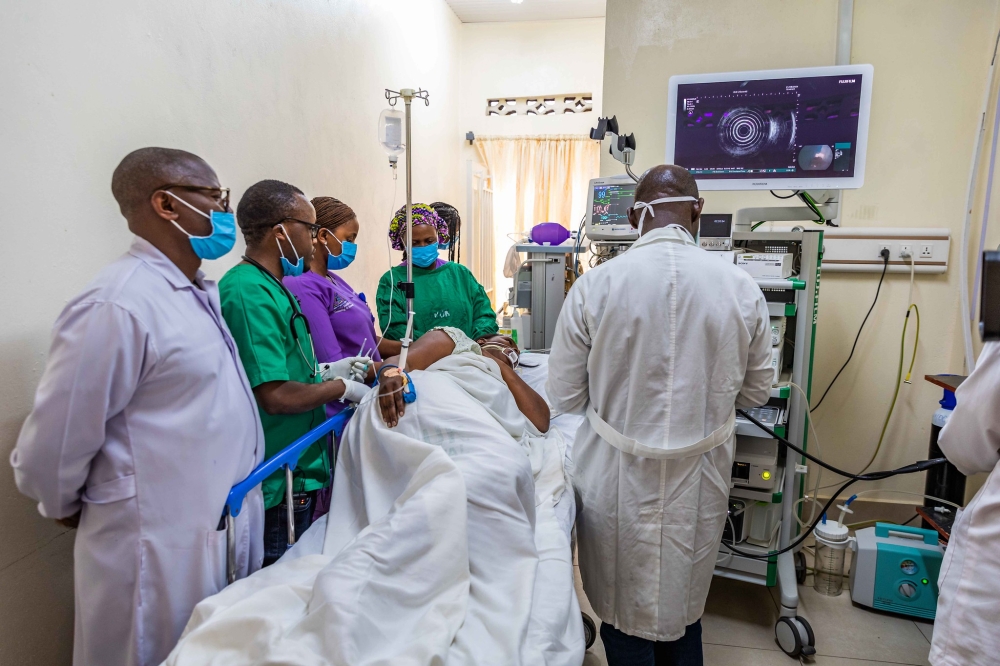The University Teaching Hospital of Kigali (CHUK) has obtained advanced endoscopy technology that integrates endoscopy and ultrasound. This innovation allows for the simultaneous evaluation of gastrointestinal issues and the performance of minimally invasive biopsies.
Officials note that Rwanda is among the few nations in sub-Saharan Africa to adopt this technology.
Referred to as echo-endoscopy or endoscopic ultrasound (EUS), this technology provides detailed images and data of the digestive tract and nearby tissues and organs, enhancing the diagnosis of conditions such as pancreatic cancer and bile duct stones.
Dr. Martin Nyundo, CHUK’s Director of Clinical Services, praised the new diagnostic equipment for its efficiency in diagnosis, time-saving benefits, and accelerated treatment process.
He explained, “This high-fidelity technique allows for immediate visualization of pathology and enables us to perform biopsies on the spot. Unlike traditional endoscopy, which only identifies issues and requires additional MRI scans and surgical biopsies, this technology streamlines the process.”
Dr. Nyundo added, “With this equipment, we can expedite diagnosis and treatment by quickly obtaining biopsies.”
The echo-endoscopy technology is also recognized for its superior image resolution compared to Magnetic Resonance Cholangiopancreatography (MRCP) and Computed Tomography (CT) scans.
It supports Fine-Needle Aspiration (FNA) for biopsies, providing accurate cancer diagnosis and staging in a less invasive manner with fewer complications than surgical biopsies. FNA involves using a thin needle to extract cells or tissue samples from suspicious areas.
In addition to aiming for Universal Healthcare Coverage for all citizens, Rwanda has set an ambitious goal of becoming a leading destination for medical tourism, attracting people from across Africa and the globe to access advanced healthcare services and training.
To achieve this, the country is making significant strides in developing its healthcare workforce, expanding infrastructure, and acquiring the necessary equipment for medical training and patient care.
As part of these efforts, the government established the Human Resource for Health (HRH) Secretariat in 2020. This organization is dedicated to enhancing health education infrastructure and building the capacity of the health workforce to support a high-quality and sustainable healthcare system.
Furthermore, new infrastructure projects are underway, including the development of the new CHUK site in Masaka, Kicukiro District, which began in January 2023 and is progressing well.
The construction is expected to be completed by 2025. Once finished, the new CHUK hospital will feature 837 beds and have the capacity to accommodate 2,000 patients daily, making it the largest hospital in Rwanda.
In addition to public projects, private facilities are also emerging. The Rwanda Heart Care and Research Foundation is set to become the first NGO hospital in the region to provide free cardiovascular healthcare services to Rwandans and neighboring areas.
Moreover, King Faisal Hospital, one of Rwanda’s largest hospitals, is preparing for a major expansion that will increase its bed capacity from 167 to nearly 600. The expansion will also introduce “luxurious architecture and ergonomic design akin to a five-star hotel,” as noted by its developers.







